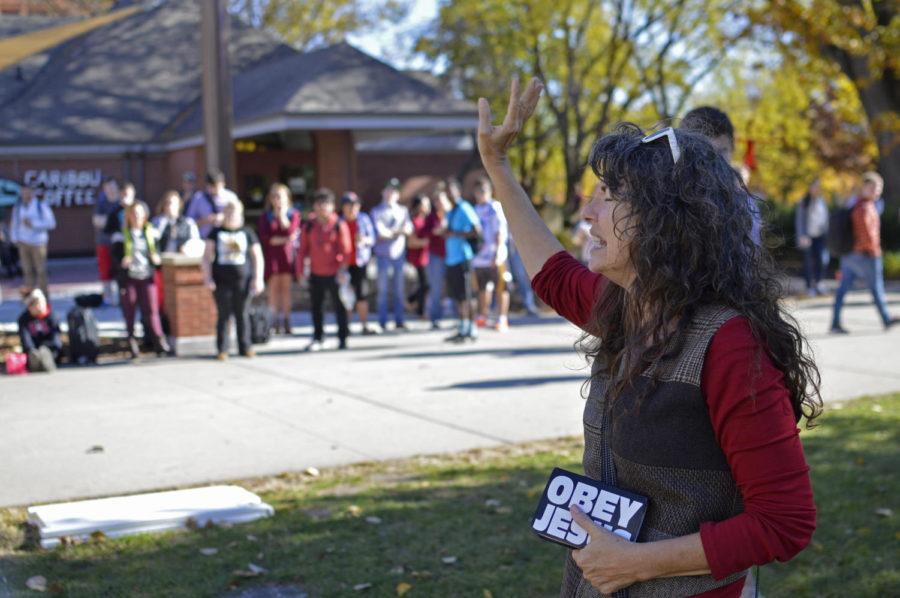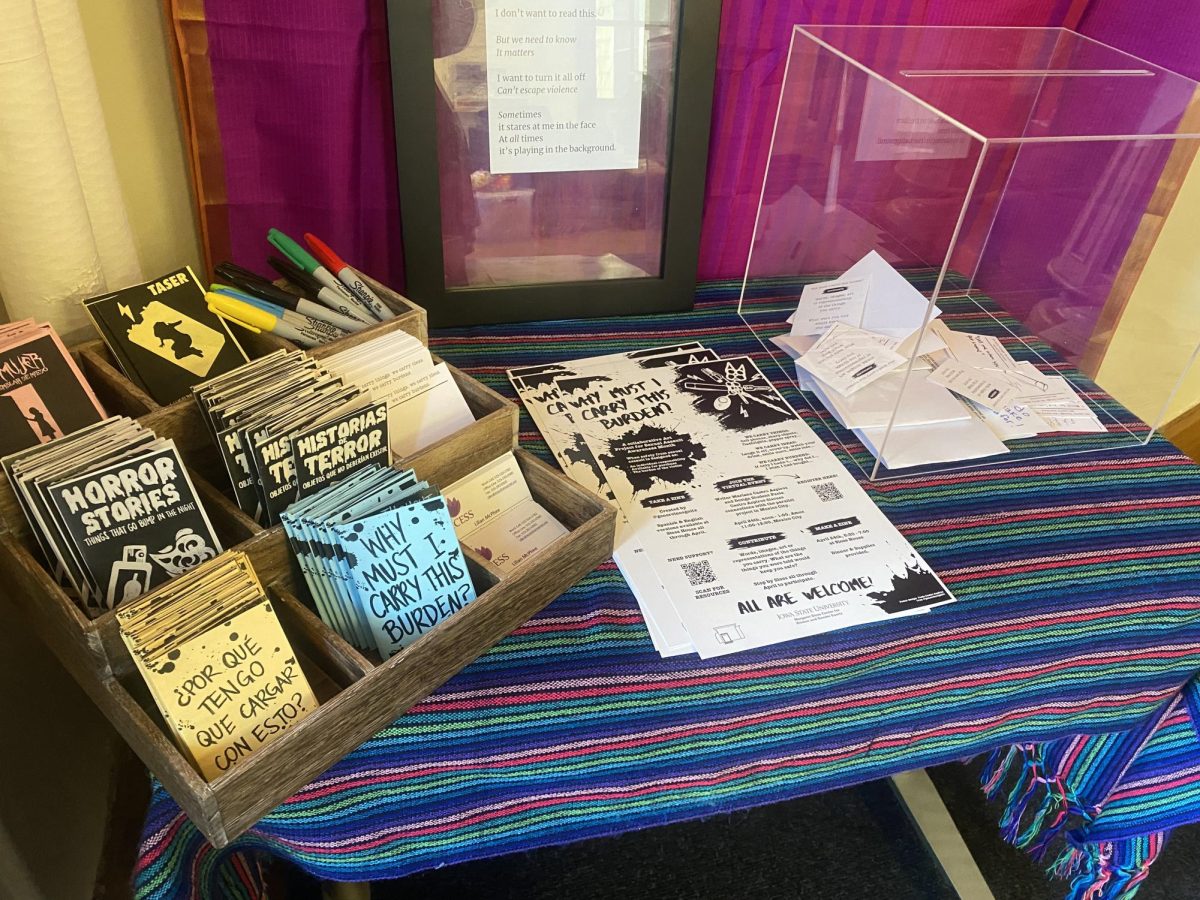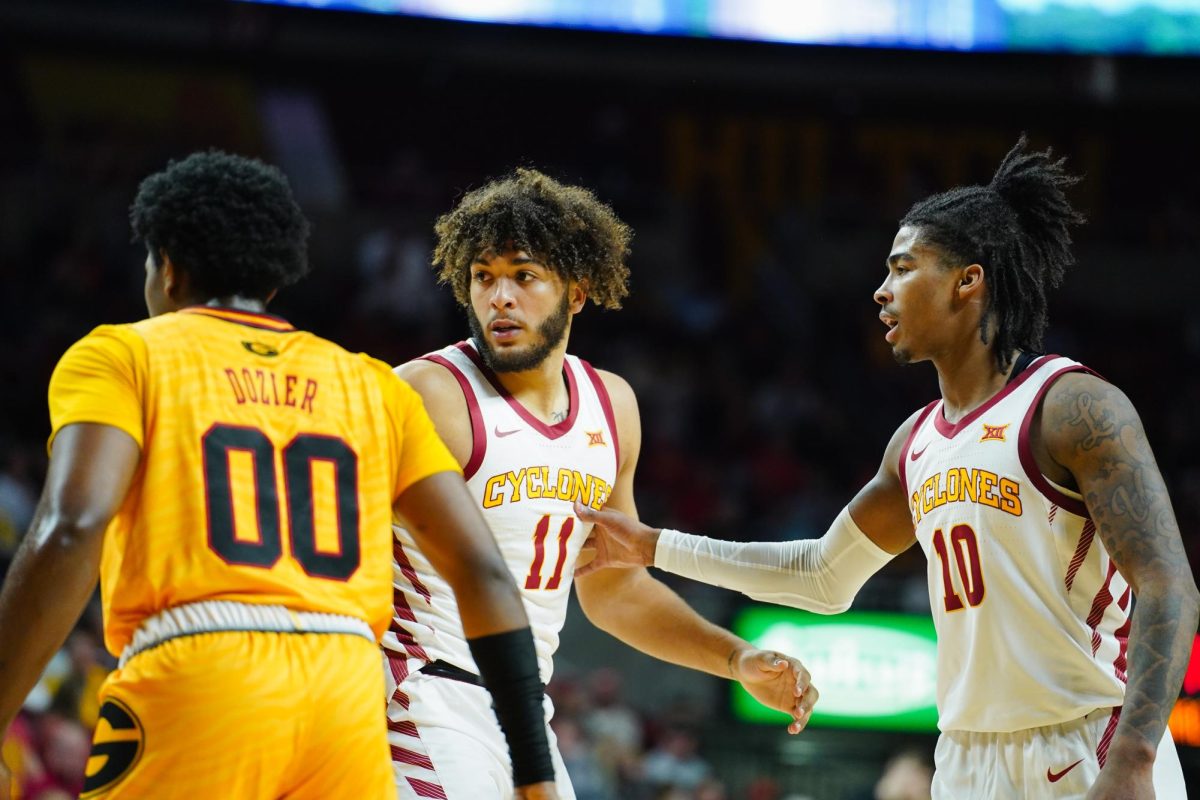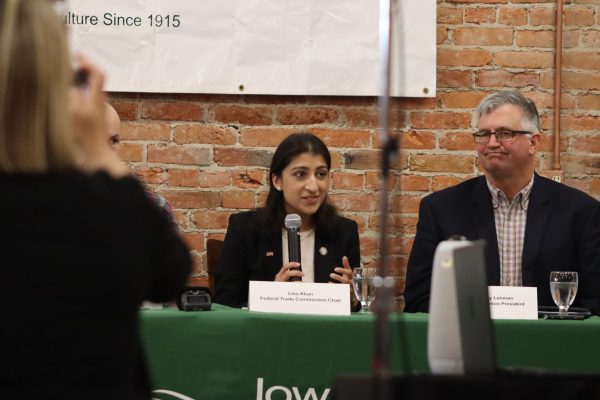National Gallup survey reveals climate on college campus regarding First Amendment freedoms
Charlie Coffey/Iowa State Daily
Sister Pat of Campus Ministry USA speaks to students in the free speech zone outside Parks Library Nov. 2.
April 19, 2016
Even as college campuses wrestle with free-speech policies designed to protect students from offensive or hurtful language, large majorities of college students consider each of the U.S. Constitution’s five First Amendment rights to be “secure.”
A recently released Gallup study, sponsored by the John S. and James L. Knight Foundation and the Newseum Institute, surveyed adults and college students in the United States to gauge students’ thoughts on the First Amendment and the right to free expression on college campuses throughout the country.
The study worked to “better understand the emerging discussion on college campuses about the First Amendment, free expression and diversity on campus,” according to the survey.
The statistics come from a random sample of 3,072 full-time U.S. college students, aged 18 to 24 from 32 U.S. colleges and 2,031 U.S. adults, aged 18 or older from all 50 states.
The survey discovered that college students are more positive in the security of their First Amendment rights than the average U.S. adult, especially in the freedom of the press, which 81 percent of college students felt confident in.
About 73 percent of students also felt secure in their freedom of speech, and 76 percent felt confident in their freedom to petition the government, according to the survey.
However, at the same time, most students who answered the survey were in favor of certain restrictions on speech and the press under certain instances. While students support maintaining freedom of speech and the press, some groups — especially those who are African-American or women — are in favor of certain restrictions.
Race also played an issue in relations to the First Amendment, in that, non-Hispanic black college students are less likely than non-Hispanic white college students to believe that their right to peacefully assemble is secure, a difference of 39 percent to 70 percent, respectively, according to the study.
The study also found that students are able to distinguish controversial views from what they see as hate, but believe “colleges should be allowed to establish policies restricting language and behavior that are intentionally offensive to certain groups.”
Fifty-four percent of students feel that the climate on their campus prevents some people from saying what they believe in fear of being offensive to others. The study reports that minority groups are in favor of certain restrictions within the boundaries of freedom of speech and press.
In a Twitter poll campaign produced by the Daily, 76 percent of ISU students said they were not in favor of restrictions on free speech to prevent hate speech on campus; 4 percent said yes.
When asked if they feel they can exercise speech freely on campus, 48 percent of Iowa Staters said yes, 21 percent said no and 24 percent said somewhat.
The national survey also revealed that adults are more likely to perceive a decline in free speech rights, 40 percent saying their ability to exercise free speech is weaker today than 20 years ago. Approximately 22 percent of college students agreed.
However, speech and assembly are not the only freedoms protected under the First Amendment. In reference to free press, the survey discovered that 59 percent of college students “have little or no trust in the press to report the news accurately and fairly.”
But even with little trust in the press, 9 out of 10 college students said “a free press is at least as important to democracy today as it was 20 years ago, if not more so.”
Based on its findings, the Gallup survey summarized six main components of the study:
- College students are more confident than U.S. adults about the security of First Amendment rights.
- College students are supportive of First Amendment rights in the abstract, but many are comfortable with certain restrictions on those rights.
- College students are generally positive about the racial environment on their campus.
- College students and U.S. adults see the country differently in terms of how the U.S. accommodates different religions, with students much more critical.
- College students have low trust in the press, and nearly half would turn first to nontraditional news sources to inform themselves of what is happening in the world.
- College students see many virtues in the role social media plays in encouraging free speech, but also have concerns about how it is used.
Tom Hill, former senior vice president for Student Affairs, offered his perspective on students’ usage of their First Amendment freedoms at Iowa State, particularly freedom of speech.
“It [higher education] is about stimulation,” Hill said. “It’s about the free expression of ideas, and free speech is very simple to that.”
He continued by offering that free speech is necessary on college campuses.
“Another thing that I’ve noticed over the years, with students being more in tuned, they know with free speech comes responsibilities,” Hill said. “Just because you can say something doesn’t mean you should say something, especially if you’re a part of a community.”
This ties in with how the Gallup survey concluded its research.
“This study leaves little doubt that college students believe First Amendment rights remain strong in this country — but raises questions about how they interpret those rights,” the study found.
“While the core principles of the First Amendment and free expression are well-rooted in society,” the definitions of those rights are debatable, specifically in this technology-mediated, diversity and race driven generation, Gallup said of its findings.
Check back to The Daily on First Amendment Day on Thursday for a more narrow article on how ISU students, faculty and administration perceive their First Amendment freedoms and what it means to them.

















